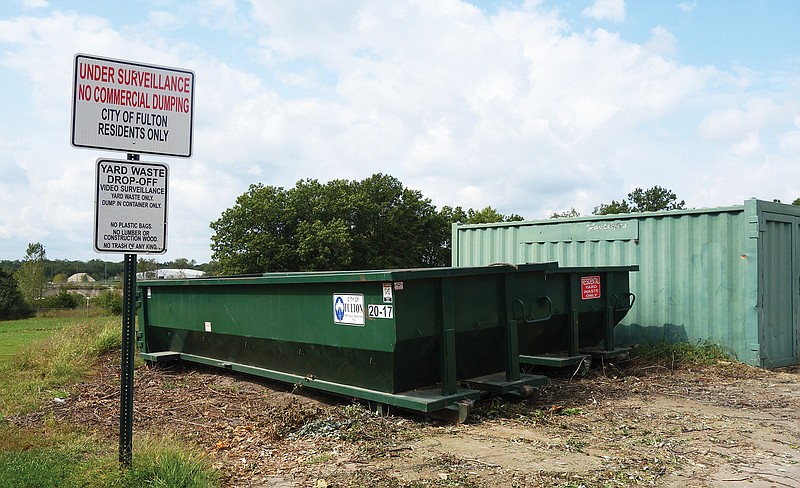In a bid to offset recycling costs, Fulton City Council passed a motion Tuesday requiring all residential curbside recycling participants to rent a recycling bin from the city.
Additionally, the rate to rent a rolling bin will increase from $1 to $2 per month. These changes won't go into effect until Jan. 1 at the earliest - the city must first order additional bins. City council members also want to leave residents time to give feedback and rent bins.
"It's a step forward," Fulton Mayor Lowe Cannell said.
Each bin costs the city $56 to purchase. At the new rate, each bin will pay for itself after about two years and four months of use.
City officials have participated in an ongoing conversation about how to offset Fulton's recycling programs increasing costs. Back in January of 2018, the city paid only $23 per ton to recycle items, versus $32.50 per ton to put garbage in a landfill. Fulton now pays about $140 per ton to recycle. Costs started going up after China dramatically decreased the amount of recyclables it accepts from the U.S. beginning in 2018.
The city loses around $195,000 annually on its three main recycling programs: residential recycling, household hazardous waste and yard waste collection, according to Fulton Assistant Director of Administration Robert Boone. And 2021's budget, already tight, lacks funds for the solid waste department to replace one of its collection trucks - something the department tries to do every year.
Cannell calculated even with the increased cart rental fee, the department is still about $80,000 short of the amount it needs to replace a truck. Director of Administration Bill Johnson said Callaway County Commissioner Gary Jungermann has offered to pay the city $10,000 annually toward the household hazardous waste recycling program, which would cover about a third of the city's direct expenses associated with the program.
"At the very least (the change) should cover the vendor cost of the recycling program, and how we fund trucks and all that can be a separate conversation," said Jeff Stone, Ward 2 council member.
Ward 1's Ballard Simmons made the point that requiring all participants to use a roll-away cart won't just make money - it'll also reduce strain on waste collectors, who won't have to get out of their trucks and pick sacks of recycling off the curb.
"There's 50-75 houses that solid waste reported are currently utilizing curbside recycling without a cart," Stone said.
"Every day," Simmons added. "So we're talking a couple of hundred people."
Stone also hopes to offset costs by educating curbside recycling program participants about what items the city's recycling vendor actually wants. There's no market for some types of plastics, for example, meaning they likely just end up in a landfill anyway.
Johnson said while the city's vendor, Federal International Recycling and Waste Solutions in Fulton, declined to give details about market values.
"But from a standpoint of what don't they want - they only want #2 and #1 plastics," he said, adding that mixed paper (except cardboard) is desirable as well.
"My assumption is that the total volume will go down and the value (to our vendor) will go up," Stone said.
Despite the costs, council members acknowledged the program's popularity and environmental importance.
"I'm a huge proponent of curbside, but this is what we need to do," Stone said.

